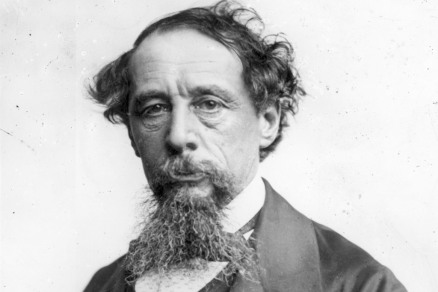- Jun 26, 2004
- 17,361
- 3,628
- Country
- Canada
- Faith
- Protestant
- Marital Status
- Married
- Politics
- CA-Others
Dickens and the Atonement

My hopes have been dashed, I was looking forward to reading the works of Charles Dickens and finding his hidden Christian themes but alas, I must report that Dickens was at best an Arminian but more likely a Pelagian.
In the book God and Charles Dickens Gary Colledge repeats that Dickens disliked “distorted Calvinism.” It quickly becomes clear that what is being called “distorted” Calvinism is really just orthodox Calvinism with his own distortions added in for good measure. Dickens rejected all Reformed theology outright and the author, to soften Dickens enmity toward it, calls it “distorted.” The characters that we find in Dickens works, introduced by Colledge, are nothing more then caricatures of Reformed Christians created and used as punching bags.
Dickens denied the biblical idea of original sin and particular redemption, he hated dogmatic theology and his hatred of it was a dogma of his own. Dickens held to many orthodox beliefs but his understanding of the atonement is very foggy leaving me with the impression that he denied the substitutionary atonement of Jesus Christ. This is important considering Colledge writes about “salvation by faith and works,” then suggests that it was a common teaching in the Anglican church at the time and Dickens probably fell instep with it. I’m not sure exactly what is meant but I don’t like the sound of it. If he believed that good works always accompany salvation yah, sure, I agree. But if he means you work for salvation, yikes! True, Dickens believed in Jesus Christ as the second person in the Trinity who is to be worshiped. He was Trinitarian. True, Dickens believed in Heaven, spoke almost nothing on hell but did believe in the judgement of God on sinners. But is it enough to say he was a Christian? The overall impression I have of Dickens religious beliefs is not good, he seemed to believed we can work for salvation by following Christ’s example and that our sins are forgiven without the need of the atoning blood of Christ.
Is it enough to say he was a Christian?
jm

My hopes have been dashed, I was looking forward to reading the works of Charles Dickens and finding his hidden Christian themes but alas, I must report that Dickens was at best an Arminian but more likely a Pelagian.
In the book God and Charles Dickens Gary Colledge repeats that Dickens disliked “distorted Calvinism.” It quickly becomes clear that what is being called “distorted” Calvinism is really just orthodox Calvinism with his own distortions added in for good measure. Dickens rejected all Reformed theology outright and the author, to soften Dickens enmity toward it, calls it “distorted.” The characters that we find in Dickens works, introduced by Colledge, are nothing more then caricatures of Reformed Christians created and used as punching bags.
Dickens denied the biblical idea of original sin and particular redemption, he hated dogmatic theology and his hatred of it was a dogma of his own. Dickens held to many orthodox beliefs but his understanding of the atonement is very foggy leaving me with the impression that he denied the substitutionary atonement of Jesus Christ. This is important considering Colledge writes about “salvation by faith and works,” then suggests that it was a common teaching in the Anglican church at the time and Dickens probably fell instep with it. I’m not sure exactly what is meant but I don’t like the sound of it. If he believed that good works always accompany salvation yah, sure, I agree. But if he means you work for salvation, yikes! True, Dickens believed in Jesus Christ as the second person in the Trinity who is to be worshiped. He was Trinitarian. True, Dickens believed in Heaven, spoke almost nothing on hell but did believe in the judgement of God on sinners. But is it enough to say he was a Christian? The overall impression I have of Dickens religious beliefs is not good, he seemed to believed we can work for salvation by following Christ’s example and that our sins are forgiven without the need of the atoning blood of Christ.
Is it enough to say he was a Christian?
jm
